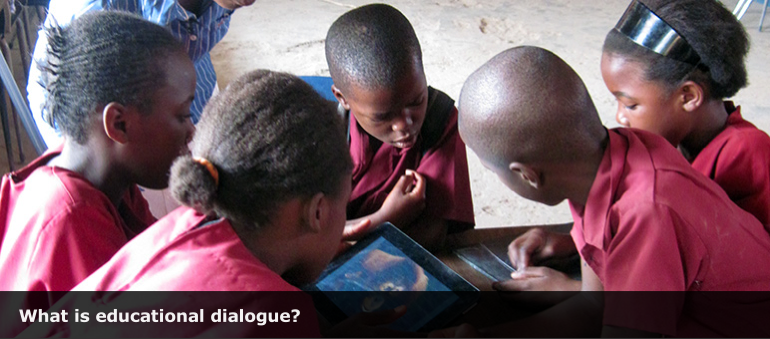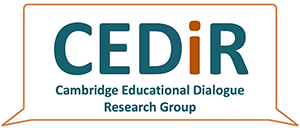
There is a growing global movement of research focussing on the potential of dialogue in transforming education. Dialogue is a complex concept; it draws on many different traditions, beginning with Socrates and Plato, and including Dewey, Freire, Buber and Bakhtin as well as more recent authors (Alexander, Boyd, Clarke, Hennessy, Mercer, Michaels, O’Connor, Resnick, Rojas-Drummond, Scott, Šedova, Wegerif, Wells, etc.). There is considerable variation in focus within the field, with some authors using the term synonymously with talk or discourse while others take more focused theoretical approaches.
While our initial position is open to adaptation and debate by researchers in the group, we currently understand ‘dialogue’ as follows (building on sociocultural and dialogic theories, especially Bakhtin and Vygotsky): Dialogue is intelligible both as a pedagogical tool for subject teaching and learning, and as an end in itself – linked to what is increasingly referred to as ‘future education’ meaning education for critical and higher level thinking, creative problem solving, democratic citizenship and living peacefully on an increasingly interconnected planet.
Dialogue is the continuous co-construction of new meanings that emerge through the dialogic space that opens up out of the gap between different perspectives. Dialogicality is a quality of communication not limited to talk; it can also be found in non-verbal human communication and multimodal forms of dialogue, interaction with text (multimodal and traditional written forms), and interaction with digital artefacts.
Dialogue is intrinsically challenging and logistically and ideologically constrained by the prevailing educational discourse, curriculum and assessment frameworks, together posing stimulating questions for researchers and practitioners.
The dialogic education movement is associated with Cambridge due to seminal work done by Robin Alexander, Neil Mercer, Christine Howe in particular. CEDiR has built and expanded upon this work, growing to become a large and vibrant group.

